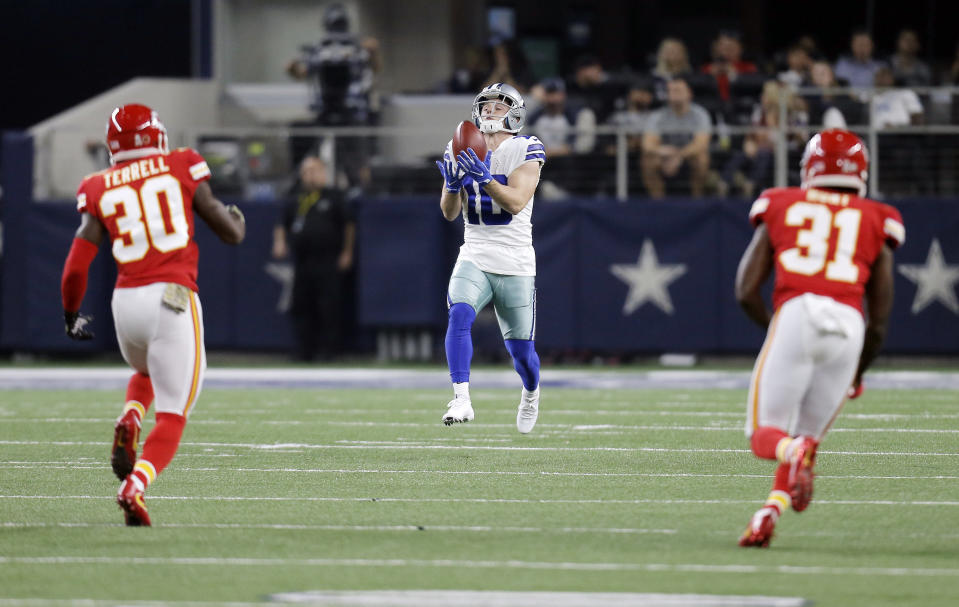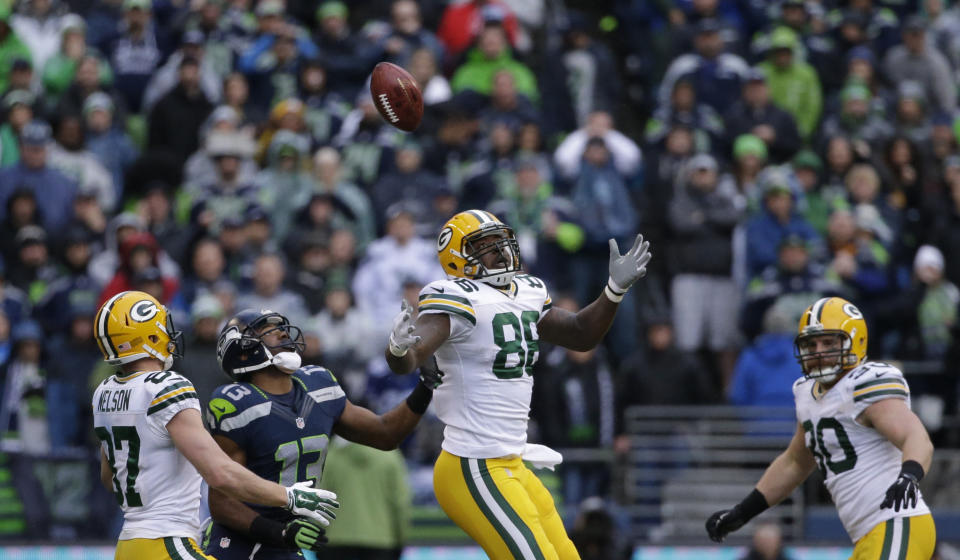America's most daring high school coach has thoughts on kickoff ban talk: 'They are doing it all wrong in the NFL'
Kevin Kelley is the head football coach at Pulaski Academy in Little Rock, Arkansas, where he has won seven state championships in the past 15 seasons, including the past four.
Part of how he accomplished that is by always kicking onside when the score is within three touchdowns.
“We attempt onside kicks 100 percent of the time,” Kelley said.
Kelley believes, and has data to back it up, that the “opportunity to create a turnover” via an onside kick is greater than the loss of field position from a failed kick. There’s more. His teams also never (or almost never) punt because the chance to run four downs worth of plays is seen as more valuable than field position (especially with high school punters). Pulaski also receives kicks with unusual formations, creating space and limiting penalties and injuries. It blitzes often because “sacks change the game” more than allowing a first down.

It goes on and on. Kelley is a famed outlier in a game known for its aversion to risk. It’s enough that Bill Belichick once brought Kelley to Foxborough for a week to talk football.
So, what does the most innovative coach in football think of the NFL discussing the idea of eliminating kickoffs altogether, as was revealed this week after a competition committee meeting in New York?
The debate is an effort to remove from the game what the NFL categorizes as football’s most dangerous play – men sprinting at full speed and crashing into each other. Doing so would represent the most significant rule change to the game in many years and almost certainly filter down through the college, prep and youth ranks.
“I have a lot of thoughts on it,” Kelley said.
First, Kelley understands the safety elements and concerns with the play, although he doesn’t think it necessarily needs to, or will be, eliminated from football (more on that later). Selfishly, he doesn’t want to see it happen because he says kickoffs are an advantage Pulaski has over other teams. He views the kickoff as an opportunity for creativity in a sport where, perhaps especially at the NFL level, there isn’t enough of it because conformity limits criticism even if it’s based in primitive or wrongheaded assumptions.
The most common outcry at the thought of eliminating kickoffs is that the game will be robbed of the occasional return for a touchdown. For Kelley that is too rare to matter – just seven in 256 regular-season NFL games last year.
Far more common, and troubling, would be the lost opportunity for imaginative strategy at each kickoff.
In Pulaski’s case, it’s attempting an onside kick every time the score is remotely close. Kelley’s reasoning is that turnover margin is among the most predictive stats when it comes to determining a game’s outcome. While winning an onside kick isn’t officially considered a turnover, he says it’s the same thing.
“If I kick it down the field and we force the return man to fumble, then that’s a turnover,” Kelley said. “Either way, we get the ball.”
The downside of failing to recover is the opponent is given better field position, but Kelley’s numbers show field position is an overrated variable, especially when considering most failed onside kicks wind up in the mid-field area.
“You win games by winning the turnover value, not field position,” Kelley said.
Kelley deploys a slew of different onside kicks and believes the pros are mistaken in how they try to pop the ball in the air rather than force a frontline defender to choose whether to field or block.
“They are doing it all wrong in the NFL,” he said.
He also believes that games are not necessarily just 60-minute contests, but the culmination of a week of preparation and practice. By attempting so many onside kicks, opponents are forced to spend valuable time during the week practicing on how to defend Pulaski on that single play.
“The amount of time a team spends on that is less time they spend on other things,” Kelley said.
Creativity, however, comes in different forms on the kickoff. While he’d like to see more onside kicks, he appreciated how when in past seasons the NFL moved the kickoff spot up, in an effort to make touchbacks more likely, New England, among others, began kicking the ball high and short, pinning teams inside their own 20.
If there are no kickoffs, all of that is gone.
To every action though, there is a reaction and Kelley acknowledges that if kickoffs are eliminated so too are desperation, end-of-game onside kicks. If so, it might improve NFL in-game strategy and play-calling. The last-minute onside kick is like a security blanket for the unimaginative coach. Right now, it is acceptable for a head coach who is trailing by two scores to play for the low probability onside kick. If it doesn’t work, he isn’t blamed for defeat based on that call – fear, Kelley believes, is a prime reason the game is so staid and conservative.
With no onside kick, however, play-calling by teams trailing in the fourth, and even the third quarter, would likely become more aggressive. More teams would go for it on fourth down (another Kelley staple) because possessions would be treasured. Even better, more coaches might call plays with four downs in mind, not just when third down fails to advance past the sticks.
It’s the difference philosophically between seeing it as having two second downs to call plays rather than two third downs. It radically changes the way the game is carried out.
“The butterfly effect,” Kelley said. “Right now, because of the onside kick, you have coaches down two scores punting the ball with 2:30 left. And they are praised for it.”
All of that assaults the sensibilities of Kelley, who admits that people still see him as a bit of a “kook” for approaching football differently. His legions are growing though, with more coaches, players and fans questioning the game’s bedrock strategies, which have been hammered home for decades via old school broadcasters and coaches.
The elimination of the kickoff, therefore, would be a mixed bag Kelley believes. There’d be no more attempting onside kicks across the game, but it would force stuck-in-the-mud coaches to properly value possession of the ball.

Is that trade-off worth it – especially with the benefits of player safety? Kelley doesn’t think it will come to that, in part because Kelley says suggestions this week by the NFL’s competition committee, if implemented, will be enough.
The competition committee has proposed banning players on the kicking team from getting a running start prior to the kick, bans any kind of “wedge blocking” by the receiving team and requires eight members of the receiving team to line up within 15 yards of the kickoff.
Kelley said this speaks to the way Pulaski already returns kicks.
By placing so many blockers by the kick, opposing players can’t get a head of steam up that makes them difficult to block (it should also cut down on concussions, which the NFL says occur at five times the rate on kickoffs as plays from scrimmage). Instead Pulaski players mostly just get in the way and try to slow kicking team players down.
[Yahoo Fantasy Football leagues are open: Sign up now for free]
By moving the point of action up the field, Pulaski’s kick returners have additional room to field and return the ball (or employ reverses, laterals and other gimmicks). Even then, Kelley usually encourages them to run on an angle out of bounds.
“I’ll take anything [yard wise] as long as we get the ball,” he said.
The lack of wedge blocking also means there is no need to have big, slow linemen on the field. Instead the team is made up of quick skill players. The entire play is different. It’s more exciting.
Pulaski, according to Kelley, rarely has any injury on a kickoffs, and turnovers and holding penalties have been almost completely eliminated.
If the competition committee’s recommendations cause the NFL to innovate on kickoffs the way the best high school coach in America does, it may not need to eliminate the play.
The safety will happen. And back in Little Rock, Kevin Kelley will still watch in frustration as someone punts on fourth-and-inches.
More from Yahoo Sports:
• Falcons sign QB Ryan to jaw-dropping extension
• Steelers make classy $8M gesture to Shazier
• ‘Weird’ playoff schedule bothering LeBron
• Ichiro’s 2018 season over, will move to front-office role

